4th newsletter of NewGenerationSkills Project
January - March 2019
Thousands have been motivated by the NewGenerationSkills Project
By spring 2019, the NewGenerationSkills Project has already proved to be successful in many forms. In Cluj-Napoca and Belgrade, an action plan was developed to bring young people closer to the economy. In Sofia and Maribor, thousands have been involved in various networking events in addition to the program's training courses. In Újbuda, the successful DLP training courses restarted in March. Here are the results of the participating cities.
Belgrade youth has a new center
The situation analysis in Belgrad shows that despite being the economic motor of the country, the capital and its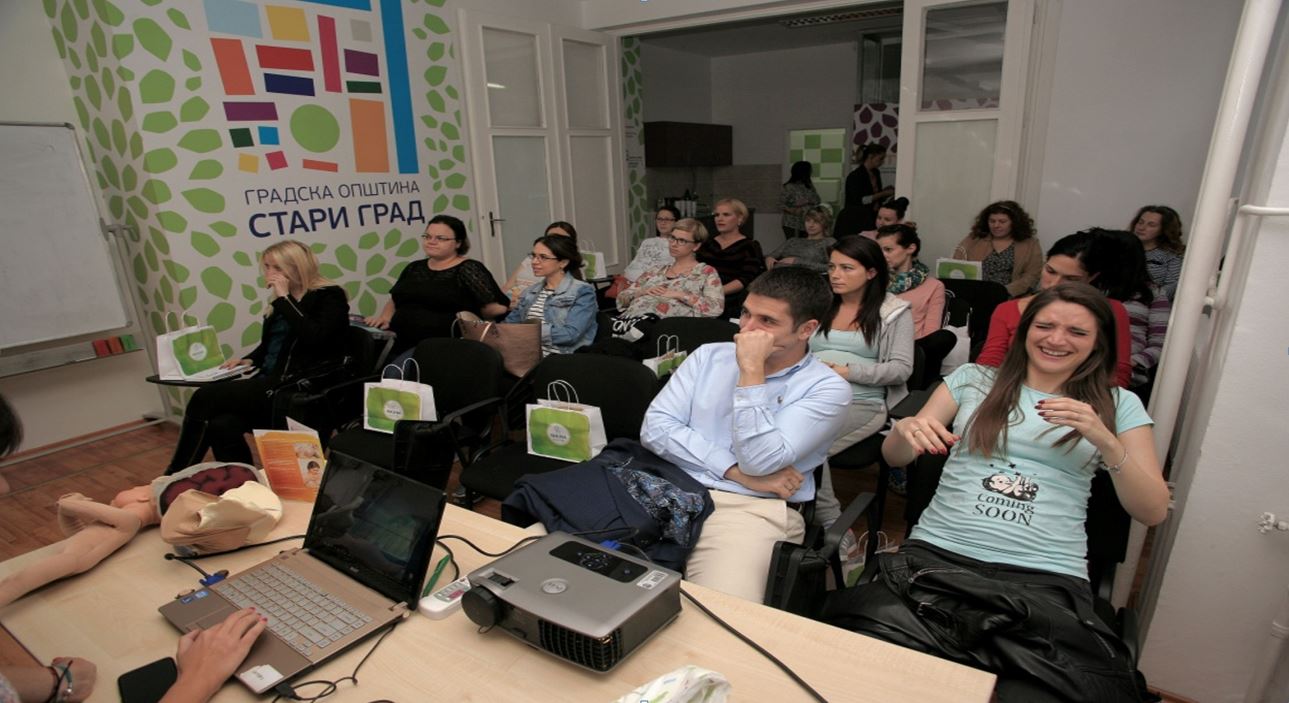 surroundings still have a serious problem dealing with youth unemployment.
surroundings still have a serious problem dealing with youth unemployment.
Part of the solution could be boosting entrepreneurship.
The situation analysis pointed out several problems to be tackled:
- General lack of institutional coordination and systematic approach to support young entrepreneurs
- Access to finance
- Unavailability of continuous counseling services
- Lack of experience of the young
A major role in the development of the local youth climate is played by the Youth Office of the Municipality. By opening IL "EUREKA", young people from the Municipality of Stari Grad got a place for continuous support with experts' advice, where they can implement their ideas, meet new people or make partnerships. One of the most effective initiatives was modern business training. The Municipality of Stari Grad recognized the need for education and training in information technology and launched 70 free courses for local citizens.
Cluj-Napoca has set impressive goals
Cluj Metropolitan Area (CMA) wants to become, until the end of 2020, a national reference point in both economic development and social entrepreneurship among the youth, through innovation, digitalization and fostering of business initiatives.
In order to accomplish this, the Action Plan was set to:
- Shift the paradigm: develop a knowledge-based entrepreneurship culture and change the mentality of young people regarding social entrepreneurship and social innovation
- Inject capital: ensure support and sources of funding for social entrepreneurship projects according to local needs
- Make it count: strengthen key skills and competencies in social entrepreneurship
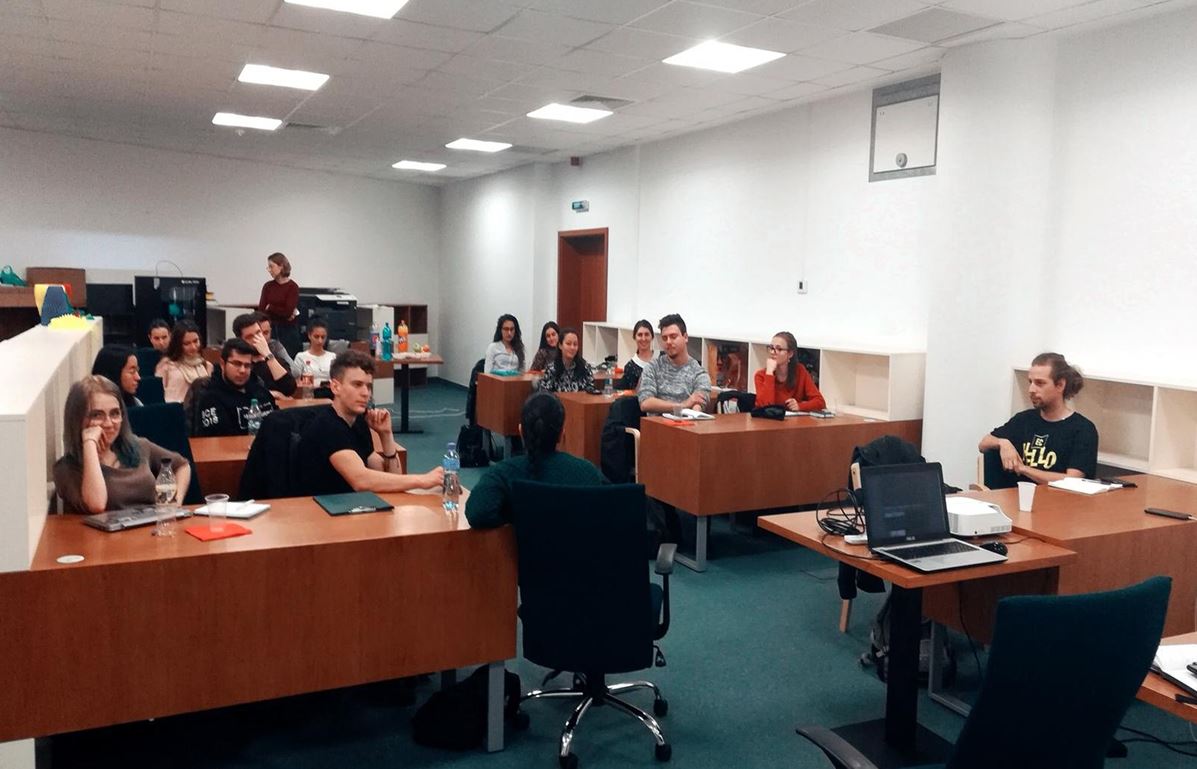 They opted for ongoing involvement of all local stakeholders from the "quadruple helix" system: Citizens, Politics, Entrepreneurs and Academia and for the facilitation of bidirectional communication between young people and businesses through less formal activities such as Meet your Business Idol for a Day.
They opted for ongoing involvement of all local stakeholders from the "quadruple helix" system: Citizens, Politics, Entrepreneurs and Academia and for the facilitation of bidirectional communication between young people and businesses through less formal activities such as Meet your Business Idol for a Day.
The most effective initiative was the creation of the Innovation LAB and the implementation of the Dynamic Learning Packag, the DLP. Through the DLP, young people will have the opportunity to get a comprehensive set of skills for their future development as innovators in the age of digital and empowered society.
Graz is leading the way with the young women
Youth Innovation Lab Graz aims to investigate the regional impact of social innovation and entrepreneurship. Workshops are followed by innovation discourses, where students present their own innovative ideas to a team of professional experts.
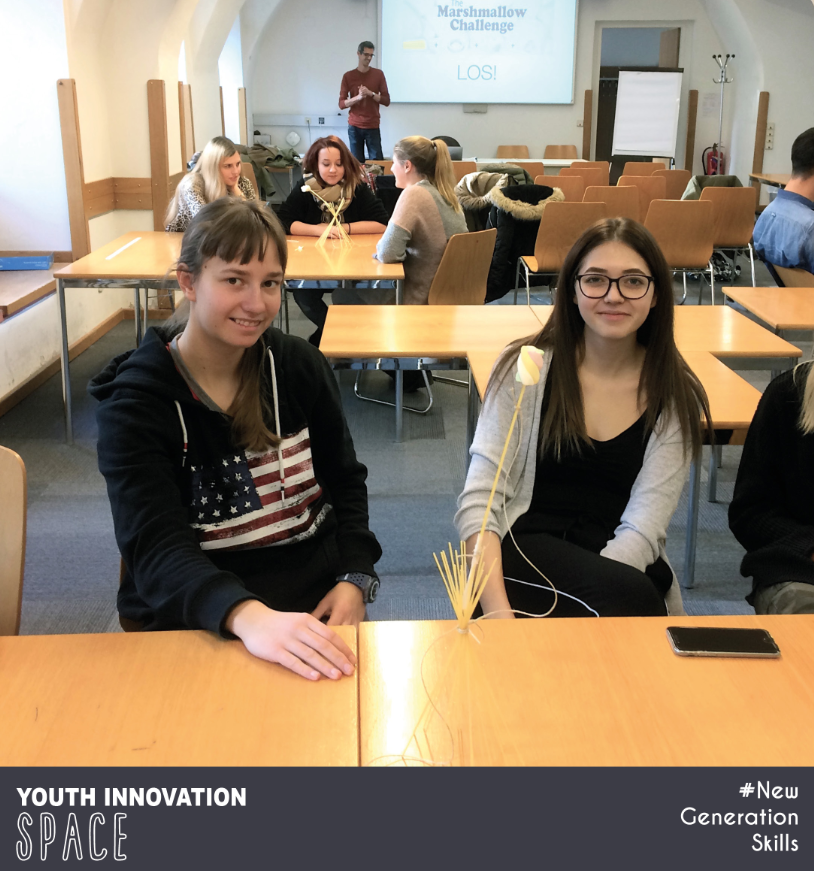 So far, 8 Community Events took place with 331 students, including 202 women and 11 teachers. Further events were held in March 2019, promoted by Youth Innovation Graz.
So far, 8 Community Events took place with 331 students, including 202 women and 11 teachers. Further events were held in March 2019, promoted by Youth Innovation Graz.
The DLP programme is offered within the Youth Innovation Lab for students and apprentices aged 15-19 years, with a special focus on girls and young women. The applicants can develop their entrepreneurial, digital and social innovation skills through the modules and the implemented learning methodologies combining entrepreneurial education and digital competences.
In 2018, 5 DLP-Sessions took place with 127 students and 6 teachers. In January and February 2019, the full program (with all 8 modules) was held for students from the Federal Government of Styria and the city of Graz, which was attended by 18 students.
Overcoming difficulties in Liberec
The innovation lab founded in Liberec is named DEXIC μFabLab. Their Education Program, the Dynamic Learning Package was launched to develop digital and business skills. Their goal was to provide a supportive environment for young people and their digital projects.
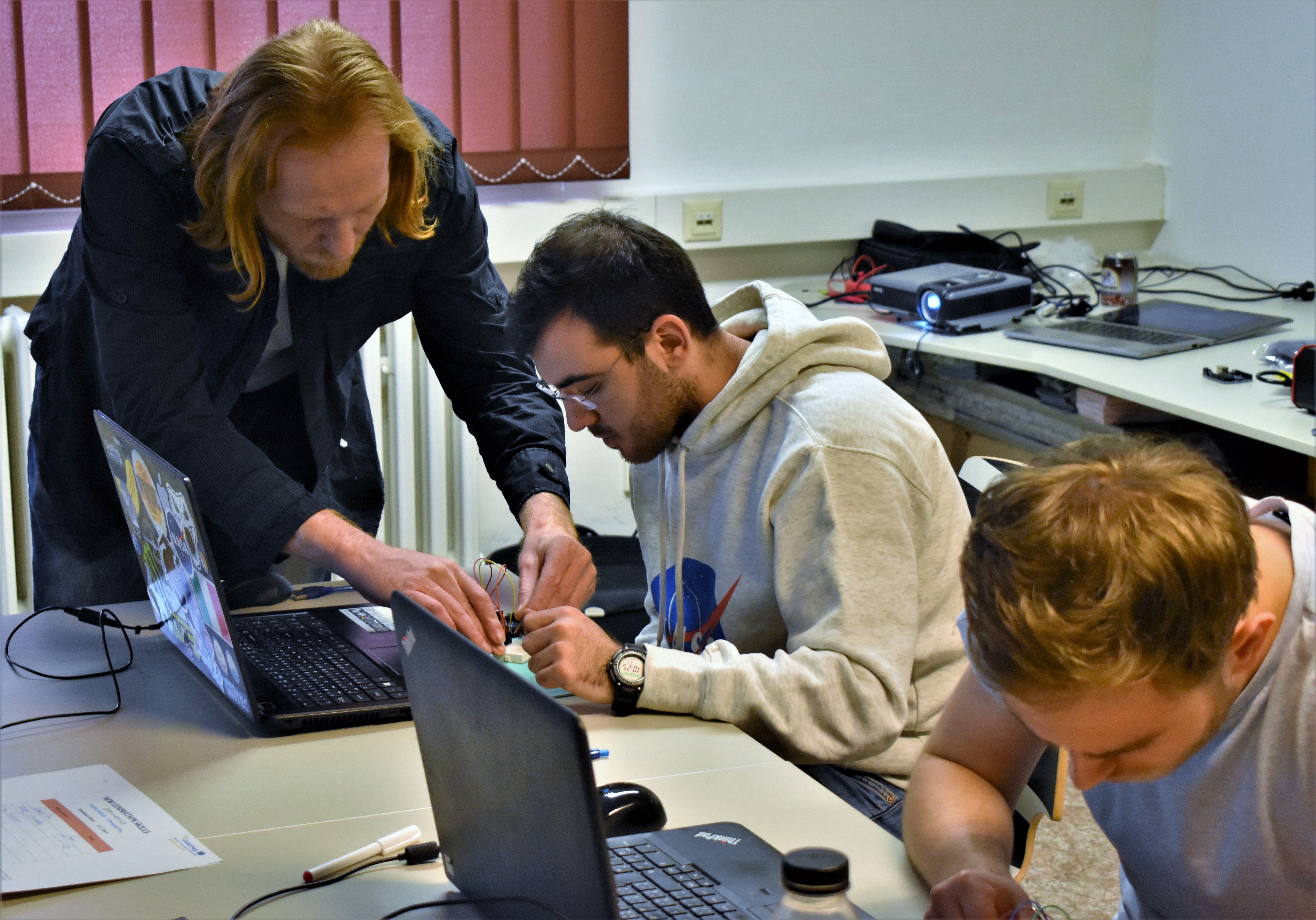 Liberec faced more difficulties than the other teams. Due to the challenging political situation, the city Liberec did not become a local partner in the project, so the DEX IC had to find a space and finance itself.
Liberec faced more difficulties than the other teams. Due to the challenging political situation, the city Liberec did not become a local partner in the project, so the DEX IC had to find a space and finance itself.
The training program was built to develop not only business but also digital skills. They have been inspired by mentors from the university and mentors from the business sector, but were also helped by the project partners involved in the NewGenerationSkills project.
The participants of the education program have already completed all eight modules. Individual training modules were divided in a ratio of 50 to 50 (digital and business) and during which participants attended workshops on 3D modeling, 3D printing, IoT workshop, but also a workshop on generating business ideas, a workshop focused on Business Model Canvas and others. The final evening they spent in the company of international startups from the Acceleration program.
Maribor focuses on raising interest for social innovation & entrepreneurship
A (social) innovation lab Fejs(t)spejs and a support network of knowledge transfer was created in Maribor for the local youth. The participants were given the opportunity to get involved in the local community events and get to know the needs of society and potential for development of social economy sector.
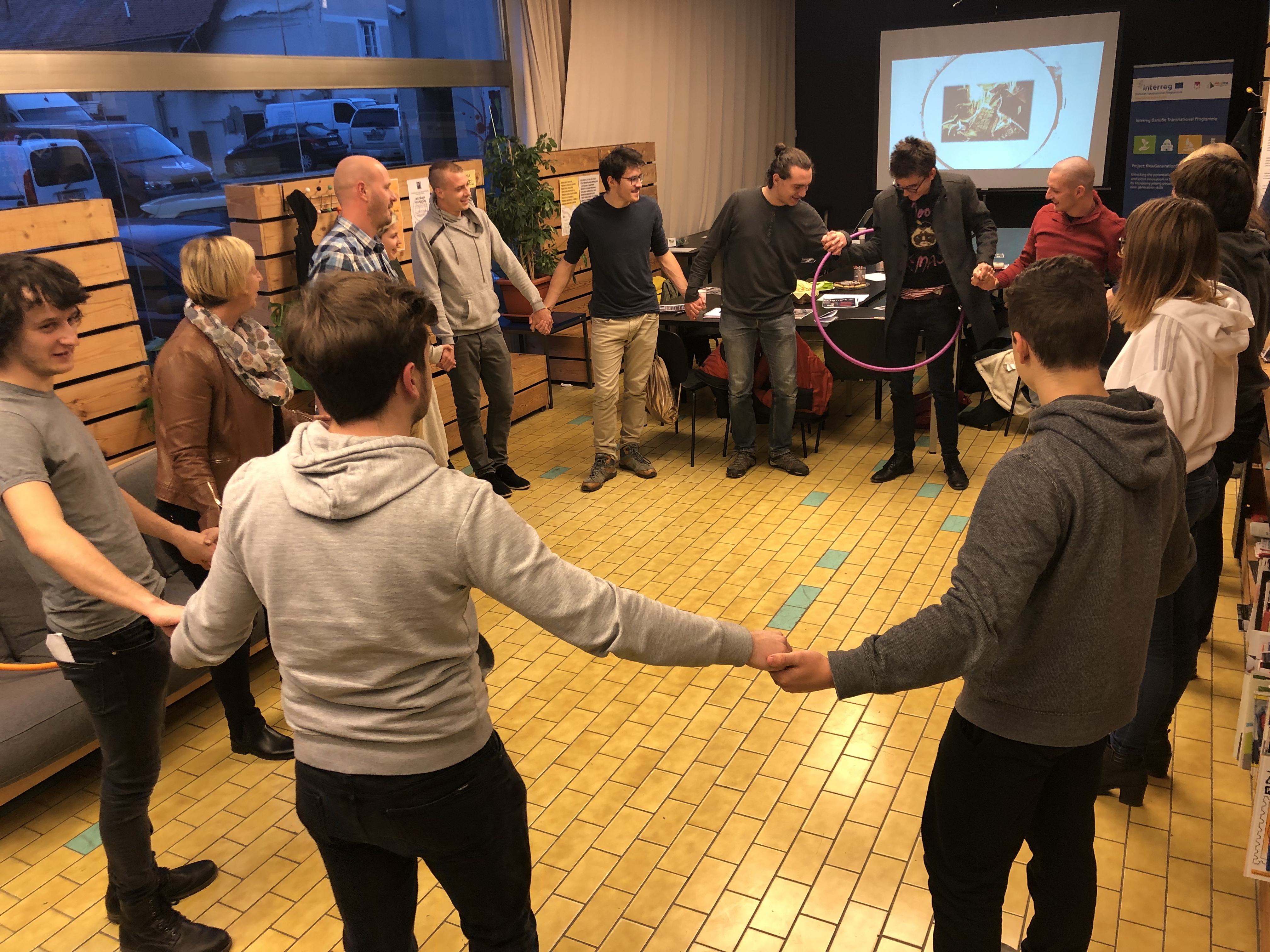 The most important initiative within Fejs(t)spejs was Social innovation Bootcamp (DLP trainings). 4 workshops were carried out strengthening the skills of youth in the field of social innovation, social economy and (social) entrepreneurship.
The most important initiative within Fejs(t)spejs was Social innovation Bootcamp (DLP trainings). 4 workshops were carried out strengthening the skills of youth in the field of social innovation, social economy and (social) entrepreneurship.
Fejs(t)spejs hosted series of networking and community events:
- Meet & Greet - networking with international social entrepreneurs
- Oktoberfejst – social innovation & entrepreneurship stories a(bou)t beer
- Workshops on issues of social enterprises
- 100% young city - boot camp
To attract as many young people as possible they created a Fejstspejs Facebook and Instagram account. Two local radio stations made a coverage of the project activities.
In Sofia they inspired 2000 people
Sofia initial Local Action Plan has two main goals: to create an infrastructure for establishing an enabling environment for innovation and youth entrepreneurship in Sofia Municipality and to make entrepreneurship education and training integrated into the learning experience.
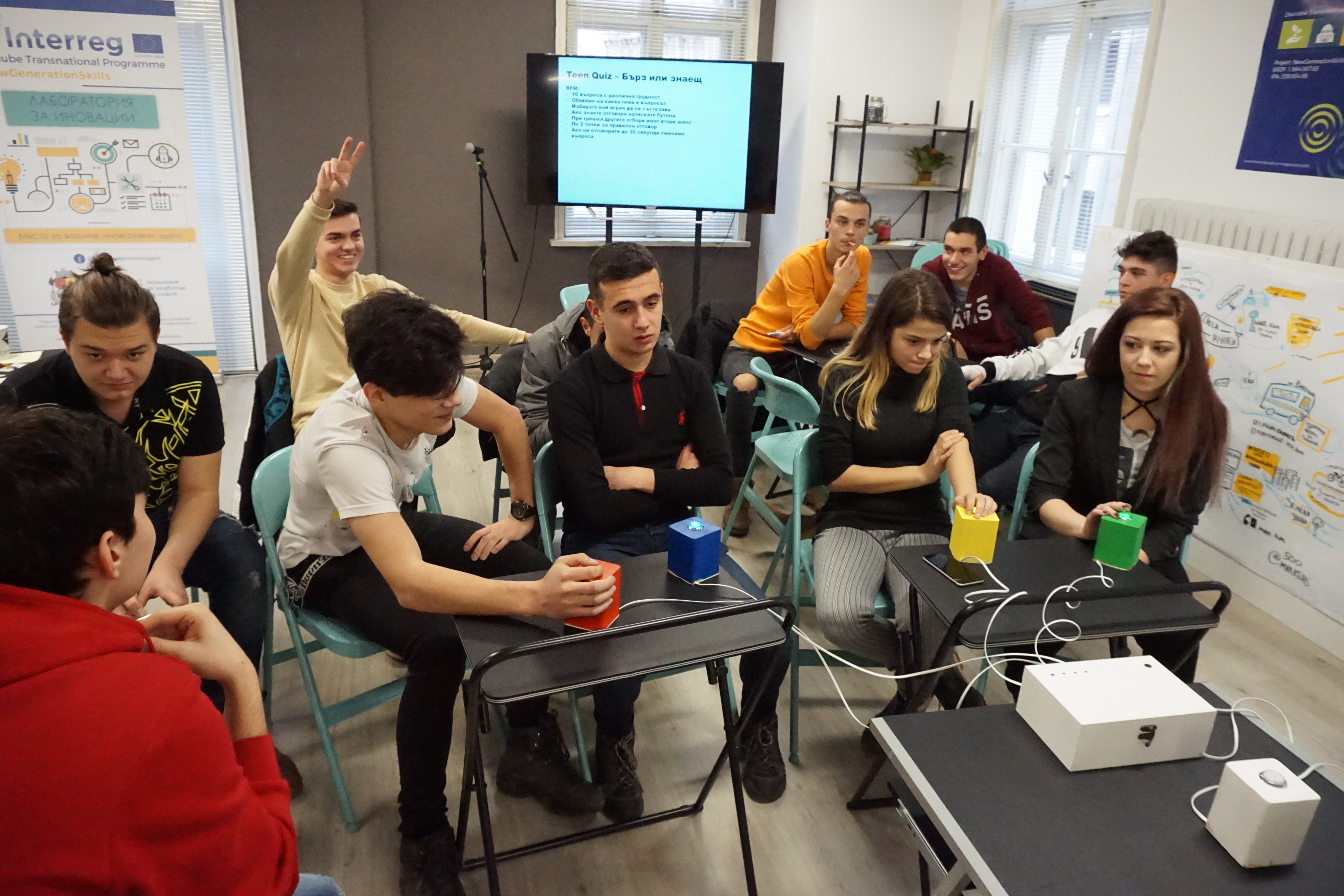 On 27 September 2018, the newly refurbished and equipped Sofia Innovation Lab was officially launched. Only within 3 months, the Sofia Lab was established as an environment attracting youth entrepreneurs and innovators with its 50+ networking events, dynamic learning programs, co-designing, community discussions, and more than 2000 participants.
On 27 September 2018, the newly refurbished and equipped Sofia Innovation Lab was officially launched. Only within 3 months, the Sofia Lab was established as an environment attracting youth entrepreneurs and innovators with its 50+ networking events, dynamic learning programs, co-designing, community discussions, and more than 2000 participants.
The entrepreneurship dynamic learning programs implemented by Sofia Development Association were directly linked to Sofia’s Smart Specialization Strategy. More than 100 trainees actively participated in the training modules.
In the process, they created new partnerships, including the University of Sofia, the Bulgarian Data Society, Microsoft Bulgaria and UNESCO Bulgaria.
Újbuda, the center of connections
The main goal of the Lead Partner Action Plan was to effectively support the career guidance of Újbuda twenty-four thousand local young people between the age of 15 and 26 and to develop their innovation skills and capacity.
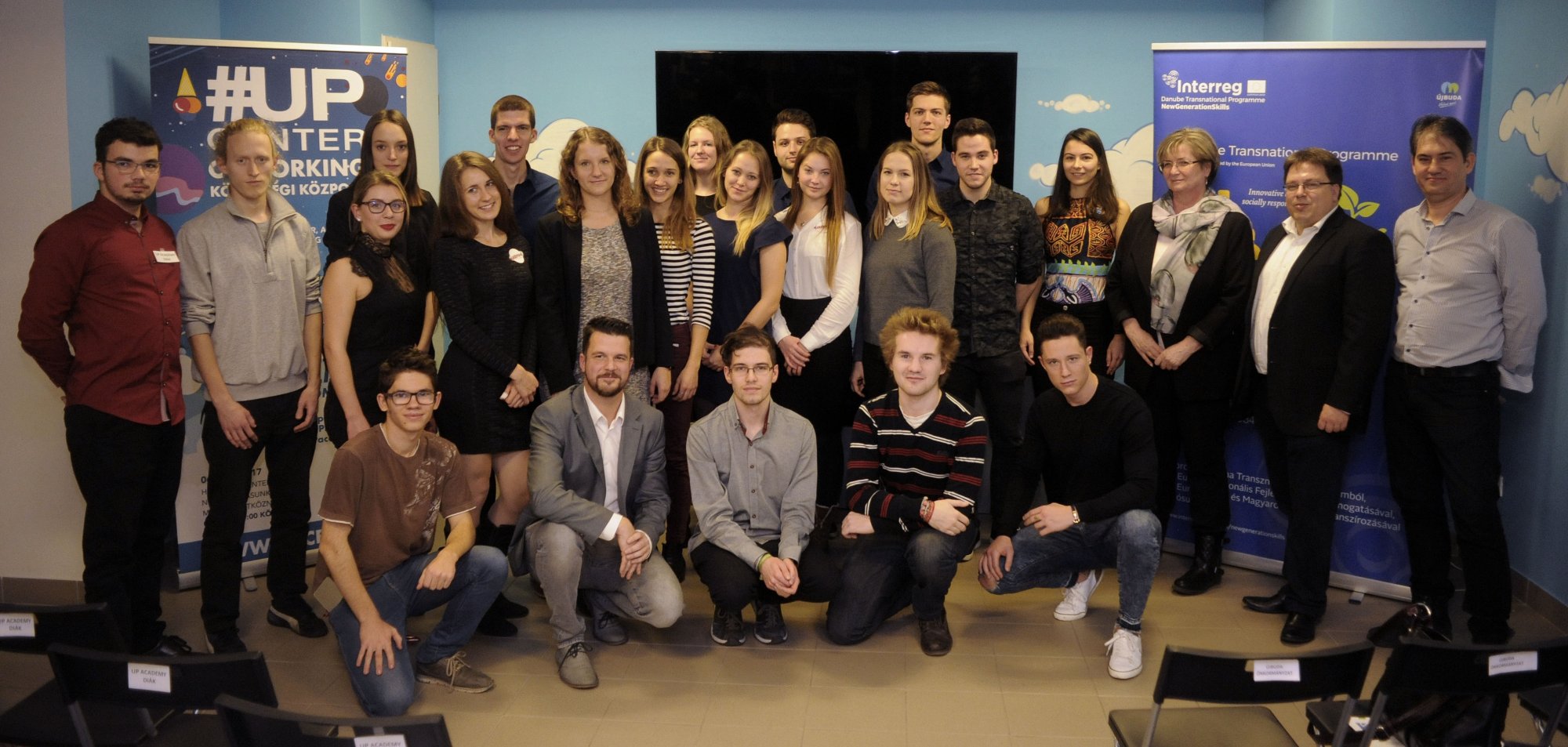 With their new programs, they assist young people interested in self-employment from developing an idea to entrepreneurship, and finally, to the international market.
With their new programs, they assist young people interested in self-employment from developing an idea to entrepreneurship, and finally, to the international market.
The municipality sought to establish a system that links young people, local and non-profit organizations and educational institutions. Young people were informed about the opportunities offered by the project at community events (table soccer party, community cooking, StartUp Night, NeonLight Quiz). They also went to district schools and universities.
Last year, they launched their joint program with Up Academy, a 9-month pilot training (DLP) with 25 young people. The students with the best projects won the award of 1 million HUF and a one-year free mentoring at the Újbuda Start-up Tender.
Their DLP training started again in March 2019 with 25 students. They provide two alternative training for secondary school students organized by Kontakt Foundation, which aims at conscious career building and career orientation. Their work has been supported by national-level government programs (eg. Youth Guarantee Program) and they negotiate with international companies and other national organizations.
Closing Conference and Idea Fair at the Lágymányosi Campus
The closing event of the NewGenerationSkills project will take place on June 4, 2019, at the Lágymányos Campus of ELTE. It will consist of a conference and an Idea Fair held on the same day, in parallel, where all partners will present their most successful projects, share their experiences and talk about their future plans. The goal is to present the results of the NewGenerationSkills project with the help of experienced partners at an international level, paying special attention to those projects that have the most potential to succeed.
